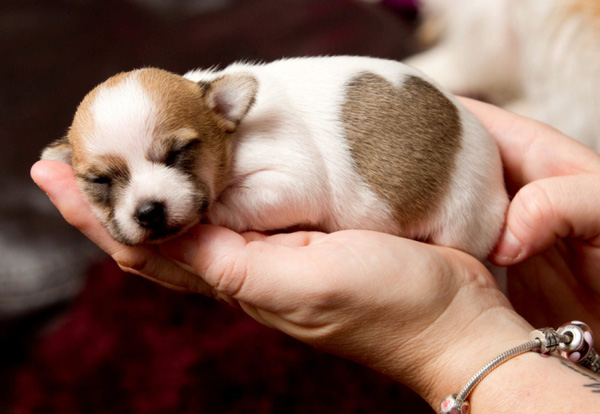Caring for newborn pets can be a rewarding yet challenging experience. Whether you’re looking after a litter of kittens, puppies, or other small animals, their early days are critical for their health and development. Newborn pets are vulnerable and rely entirely on their caregivers for nourishment, warmth, and safety. Here’s a comprehensive guide to help you provide the best care for your newborn pets.
1. Prepare a Safe and Comfortable Environment

Newborn pets need a warm, quiet, and safe space where they can grow and develop. This area should be free from hazards and easily accessible for cleaning and monitoring. Here’s what to consider:
- Location: Choose a spot away from high-traffic areas and loud noises to reduce stress.
- Temperature: Newborn pets cannot regulate their body temperature, so maintaining warmth is crucial. Use heating pads or heat lamps, ensuring they are placed at a safe distance to avoid burns. The ideal temperature for the area should be between 85-90°F (29-32°C) for the first week.
- Bedding: Provide soft, clean, and washable bedding, such as blankets or towels. Avoid materials that could cause choking or tangling.
A stable environment fosters a sense of security, which is essential for the well-being of newborn animals.
2. Monitor Their Health Closely

Newborn pets are highly susceptible to illnesses and infections. Regular monitoring can help you identify potential issues early. Pay attention to the following:
- Weight Gain: Use a digital scale to weigh the pets daily. Steady weight gain is a good indicator of health.
- Feeding Habits: Monitor their nursing or bottle-feeding sessions. Lethargy, refusal to eat, or weak sucking may indicate a problem.
- Physical Appearance: Check for signs of illness, such as swollen abdomens, discharge from the eyes or nose, or skin rashes.
- Behavior: Healthy newborns should be active and vocal during feeding times and sleep peacefully afterward.
If you notice any unusual symptoms, consult a veterinarian promptly.
3. Ensure Proper Nutrition
Nutrition is vital for the growth and development of newborn pets. Their diet will vary depending on whether the mother is present and able to nurse.
- Nursing from the Mother: Mother’s milk provides the perfect balance of nutrients and antibodies to support the immune system. Ensure the mother is healthy, well-fed, and producing enough milk.
- Bottle-Feeding: If the mother cannot nurse, you’ll need to bottle-feed the newborns with a formula specifically designed for their species. Do not use cow’s milk, as it can cause digestive issues.
- Feeding Schedule: Newborns typically need to be fed every 2-3 hours, including during the night. As they grow, the feeding intervals will gradually increase.
Use a specialized bottle or syringe for feeding, and ensure the milk is warmed to body temperature before serving.
4. Help Them Eliminate Waste

Newborn pets cannot urinate or defecate on their own during the first few weeks. In the absence of their mother, you’ll need to assist them:
- After Feeding: Gently rub their genital area with a warm, damp cloth or cotton ball to stimulate elimination.
- Cleanliness: Ensure the area is cleaned immediately after to prevent infections and odors.
This step is crucial for their health and hygiene.
5. Socialization and Bonding
While newborn pets are too young for active play, early socialization is important for their emotional development. Handle them gently for short periods each day to build trust and help them become accustomed to human interaction. However, avoid overstimulation, as they need plenty of rest to grow.
Once they open their eyes and become more mobile (around 2-3 weeks old), you can gradually introduce toys and safe objects to explore.
6. Support the Mother (if Present)

If the mother is present, her well-being directly affects her ability to care for the newborns. Here’s how to support her:
- Nutrition: Provide high-quality food with extra calories and nutrients to meet the demands of nursing.
- Hydration: Ensure she has constant access to fresh water.
- Rest: Create a quiet space for her to care for her litter without interruptions.
Keep an eye on her behavior and health. Any signs of distress, illness, or neglecting the litter should be addressed with a veterinarian.
7. Gradual Weaning Process
Weaning is the transition from milk to solid food and typically begins around 4 weeks of age. Here’s how to do it:
- Introduce Soft Food: Start with a mixture of wet food and formula, creating a porridge-like consistency.
- Encourage Exploration: Place the food in shallow dishes and allow the pets to explore it at their own pace.
- Reduce Milk Feedings: Gradually decrease bottle-feeding sessions as they consume more solid food.
By 8 weeks, most pets should be fully weaned and ready for a regular diet.
8. Vaccinations and Veterinary Care

Regular veterinary visits are essential for newborn pets. A vet will assess their overall health, administer vaccinations, and discuss preventive care. Key milestones include:
- Deworming: Parasites are common in newborns and should be addressed early.
- Vaccinations: Follow your vet’s recommended vaccination schedule to protect against diseases.
- Microchipping: Consider microchipping for identification once they’re old enough.
Establishing a relationship with a trusted veterinarian ensures your pets receive the care they need as they grow.
9. Prepare for Adoption (if Necessary)
If you’re fostering newborn pets, you’ll eventually need to find them loving homes. Before they leave:
- Health Check: Ensure they are healthy, vaccinated, and spayed/neutered (if appropriate for their age).
- Socialization: Spend time teaching them basic behaviors and getting them accustomed to different environments.
- Screen Adopters: Choose responsible individuals or families who can provide a safe and nurturing environment.
10. Be Patient and Compassionate
Caring for newborn pets is a time-intensive process, but it’s also incredibly rewarding. Remember that patience and compassion go a long way in ensuring their health and happiness. Celebrate each milestone and take pride in the positive impact you’re making on their lives.
Conclusion
Newborn pets require round-the-clock care, attention, and love. By preparing a safe environment, providing proper nutrition, and monitoring their health, you can help them grow into strong and healthy companions. Whether you’re raising them yourself or preparing them for adoption, the effort you put into their early days will lay the foundation for a lifetime of happiness.
More posts you might be interested in:














